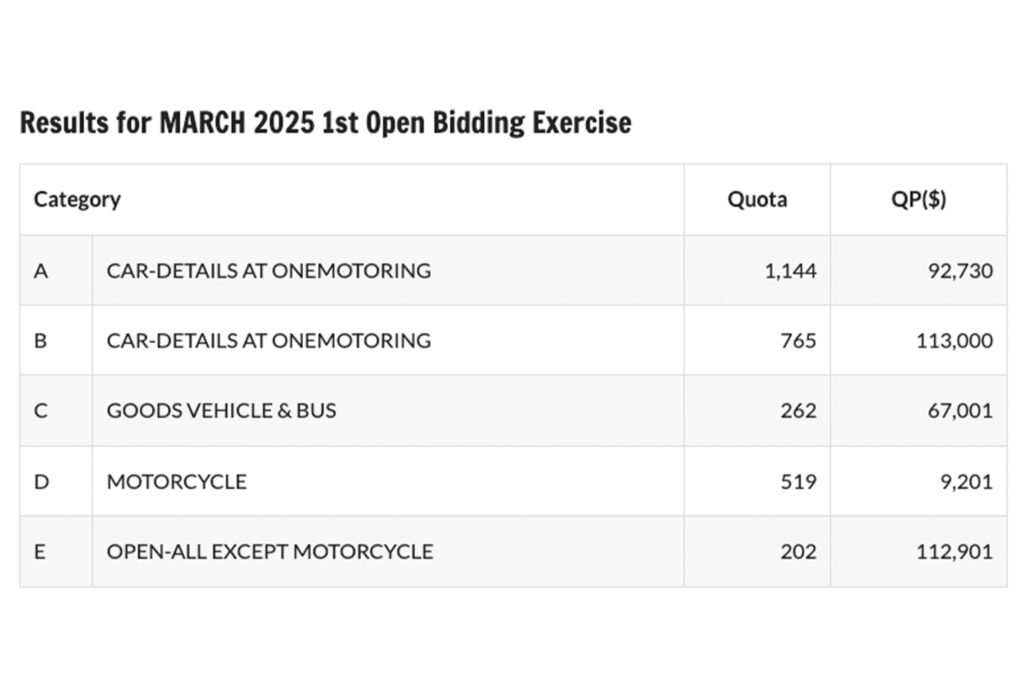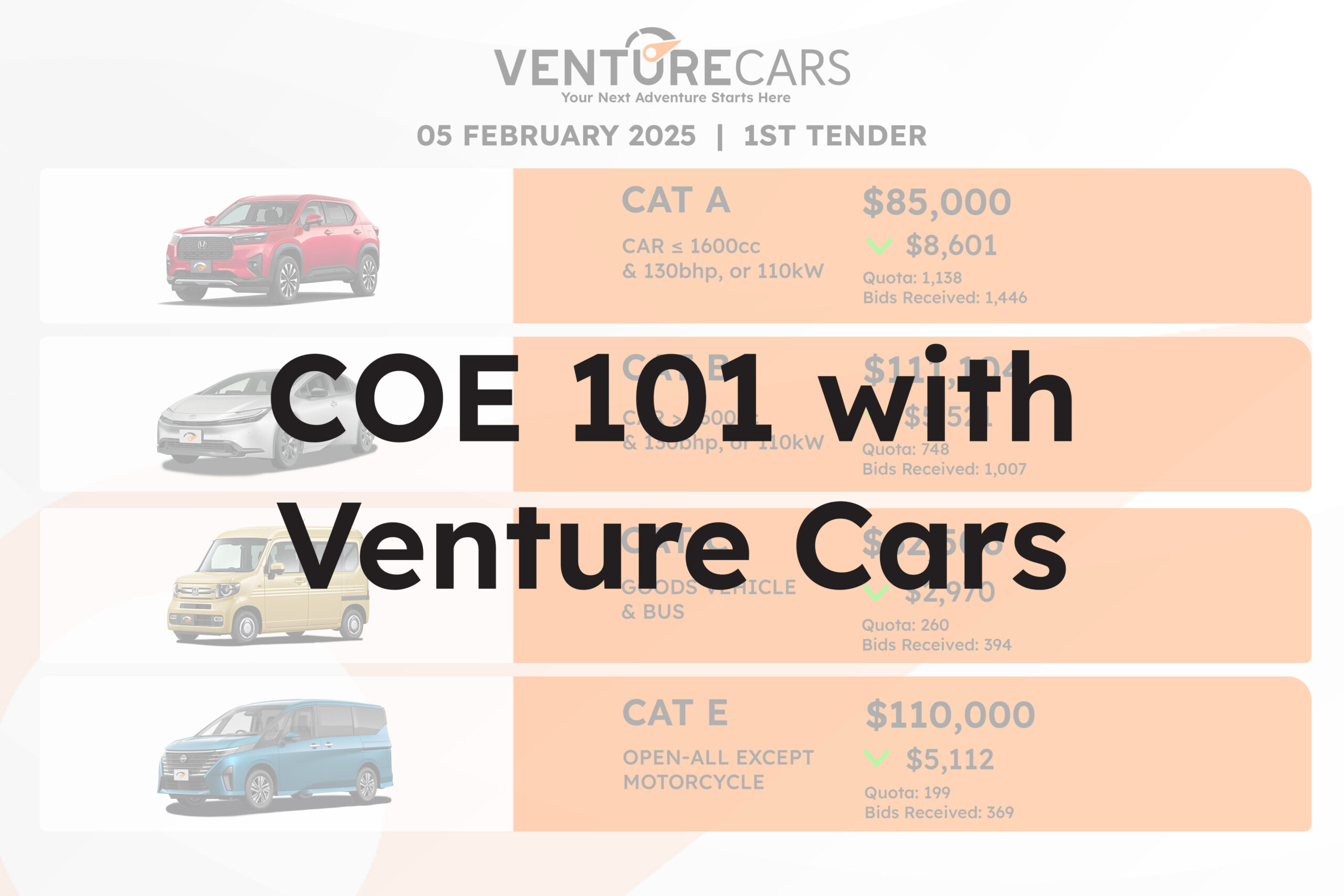COE 101 with Venture Cars: Understanding the Certificate of Entitlement (COE) in Singapore
If you’ve ever considered buying a car in Singapore, you’ve likely encountered the term Certificate of Entitlement (COE). The COE is a unique system implemented by the Singaporean government to regulate vehicle ownership and control road congestion. In this article, we’ll break down everything you need to know about COE, including how it works, the bidding process, and what factors influence COE prices.
How does COE Bidding Work?
COE is allocated through a bidding system conducted twice a month by the Land Transport Authority (LTA). The bidding process involves several steps:
- Submission of Bids – Individuals or dealers submit their bids via the LTA’s online system.
- Price Fluctuation – Bids increase in real-time as demand changes.
- Quota Premium Determination – The final COE price, known as the Quota Premium (QP), is set based on the lowest successful bid.
- COE Allocation – Successful bidders receive their COE, allowing them to register a vehicle.

COE Categories
COE is divided into different categories depending on the type of vehicle. For instance, the Toyota Prius in Singapore, known for its hybrid efficiency, typically falls under Category A below, making it an attractive option for eco-conscious drivers.
- Category A – Cars with an engine capacity up to 1,600cc and a maximum power output of 130bhp.
- Category B – Cars with an engine capacity above 1,600cc or a power output above 130bhp.
- Category C – Goods vehicles and buses.
- Category D – Motorcycles.
- Category E – Open category (can be used for any vehicle type, typically purchased by dealers).
Factors Affecting COE Prices
COE prices are highly volatile and influenced by several key factors:
- Vehicle Demand – Higher demand for new cars pushes COE prices up.
- Economic Conditions – A strong economy often leads to increased vehicle purchases.
- Government Policies – Changes in quotas or tax structures can impact COE prices.
- Seasonal Trends – Periods like festive seasons or new car launches may see higher COE bids.
- Quota Supply – The government periodically adjusts the COE supply, affecting prices. Available quota will be released quarterly.

COE Renewal vs. Buying a New Car
When a COE nears expiration, owners must decide whether to renew or deregister their vehicle.
- Renewing COE: Owners pay the Prevailing Quota Premium (PQP) based on the average COE prices of the past three months. A 10-year renewal allows another full cycle, whereas a 5-year renewal limits further extensions.
- Buying a New Car: This requires bidding for a new COE, which can be costly if prices are high.
Final Thoughts
The COE system plays a crucial role in managing Singapore’s limited road space and maintaining a sustainable urban transport environment. While COE prices fluctuate, understanding how the system works can help car buyers make informed decisions on vehicle ownership and renewal.
Whether you’re a first-time buyer or looking to renew your COE, staying updated on COE trends is essential to navigating Singapore’s automotive landscape.

